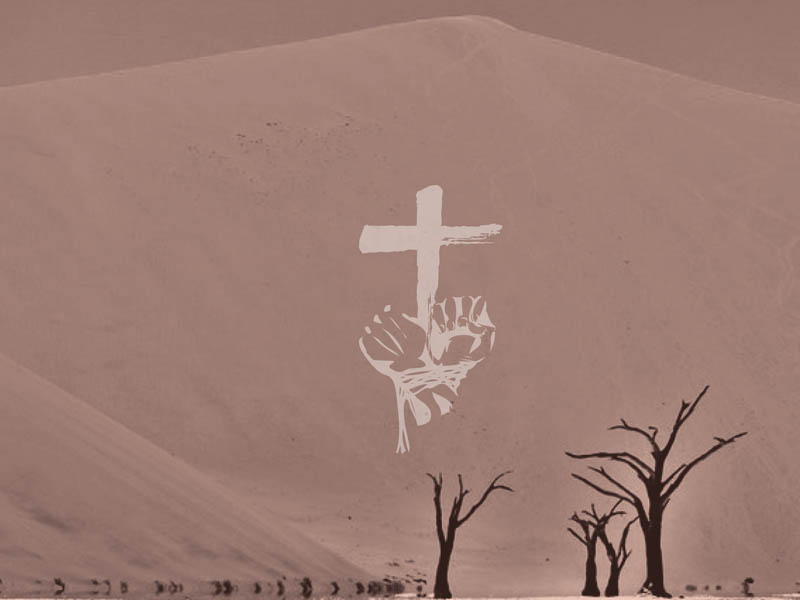Source: www.persecution.org
Date: August 8, 2023

Sahel (International Christian Concern) –Due to religious extremism, climate change, economic challenges, displacements, and unstable governments, 11 million people in Cameroon, Chad, Niger, and Nigeria are affected by crises in their daily lives. Leaders in this region have come to recognize that aiding the people is the first step to creating lasting peace and stability in this region.
A statement was issued in early July 2023 by Nigeria International Non-Governmental Organizations (INGO) Forum leader, Camilla Corradin, highlighting this need.
“The situation in the countries surrounding the Lake Chad Basin continues to raise major concerns among INGOs. In our daily operations, we witness the burden on the people we strive to serve amidst insecurity and a reduction in the resources available to carry out humanitarian, peacebuilding, and development assistance. But we also have hope that coordinated action by all actors, starting from the government and supported by partners including the international community, can save lives, build resilience, move this region towards greater stability, and revive the development process that has been limited by the ongoing crisis in the LCB region.”
Violence has plagued the Lake Chad Basin for decades with militant extremist groups like Boko Haram, along with instability in several governments and inconsistent interaction with foreign powers that contribute to the dire need to humanitarian aid in the region.
The Boko Haram insurgency active in the Lake Chad Basin is responsible for the death of more than 350,000 and the displacement of millions of people from their homes. The numerous battles between these militants and armies from Chad, Niger, and Nigeria have resulted in severe violence, including the death of 92 and the wounding of 47 more Chadian soldiers in March 2020 alone.
As of 2015, a larger portion of Boko Haram officially joined the Islamic State, changing its name to the Islamic State in the West African Province (ISWAP). While smaller Boko Haram affiliates were still active in the Lake Chad Basin, ISWAP absorbed the territory by killing the leader.
The Multinational Joint Task Force (MNJTF) was formed in 2014 in an attempt to better combat extremist violence in the Chad River basin and the larger region of the Sahel in the future. This group, comprised of Benin, Cameroon, Chad, Niger, and Nigeria, was joined just four years later in 2017 when France and the so-called Group of Five for the Sahel (G5) countries – Burkina Faso, Chad, Mali, Mauritania, and Niger – created the G5 Sahel force. This group, also aimed at fighting terrorism in the region, was initially comprised of five thousand troops ready for action.
While the idea of these task forces is very promising, the severe instability alongside egregious human rights violations in the region has proven the goal of ridding the Chad River basin of terrorism extremely difficult.
In a report regarding terrorism in the Sahel, the Council on Foreign Relations brought up examples of instability, such as increased gun violence in Nigeria in late 2022, military violence on civilians in Mali and Burkina Faso, and a coup d’état in Niger in July 2023. Each of these conflicts have limited the ability and efficacy of the larger fight against terrorist groups, including Boko Haram/ISWAP, in the near future.
The United States and the United Kingdom recalled all embassy officials from Abuja, Nigeria, in October 2022 after an uptick in gun violence across the northern portion of the country. While the violence was not officially attributed to extremist organizations, the official reasoning for the withdrawal was “a heightened risk of significant terrorist attack,” according to the Council on Foreign Relations.
Tensions in Mali and Burkina Faso are high in 2023 with allegations of civilian massacres with reported deaths of 136 by the military. The United Nations released a report in May, accusing Malian soldiers alongside foreign fighters of executing more than five hundred civilians in March of 2022. The withdrawal of the UN forces from Mali creates questions about how stability is to be formed moving forward.
Most recently, the coup d’état in Niger on July 26, 2023, marked the ninth attempted overthrow of a West African government in the last three years. Niger has proven a significant resource in the development of the region, with foreign governments such as France and the United States moving thousands of troops through the country, with U.S. Secretary of State Antony Blinken calling Niger a “model of democracy” in March.
Given this vast disruption in the region, the need for humanitarian aid remains high, and INGO leaders are hopeful for the impact it will have in the future. In her interview, Corradin also explained how “Humanitarian, development, and peace interventions are not mutually exclusive. As stressed by the LCB governors during the forum, if those actions are carried out in a complementary and coordinated manner and based on joint analysis, they can amplify impact. Given the millions of people impacted by the crisis in the LCB and despite a complex operational environment, INGOs such as the International Rescue Committee (IRC) support people in need through initiatives that span across prevention, humanitarian response, and resilience building.”
International Christian Concern hopes to work as an international partner with these countries to help build a more stable future by providing the much-needed resources, including the Christian faith.
HOW TO PRAY: Pray for believers in need to access the aid they need. Pray for godly leaders to be elected in each of these nations. Pray for peace between religious groups in the region.
